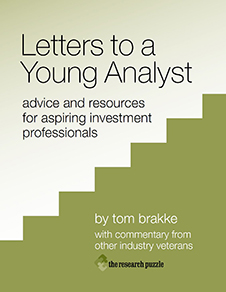
- Monday, February 9th, 2009
- failed incentives
-
New lines are being drawn between government and private enterprise by the day.To wit: Prior to a few days in the infirmary, the opening sentence for this posting started with, “There is great fear in some quarters that the federal government is about to regulate compensation . . .” One only needs to look at the tax code to understand that the authorities have a lousy record of crafting sensible incentives; the Fed and other regulators have had difficulty as well. No doubt “the market” is the best theoretical mechanism for the molding of risks and rewards, but its résumé looks to be full of problem engagements, so even some of those predisposed to free market principles are reluctantly endorsing strictures on firms receiving government handouts.
Experts can debate the meaning of “market failure,”Wikipedia | And lazy bloggers can link to summaries of the principles authored by mysterious members of the crowd. but it seems that the highest-paid group of economic actors, battling it out in the market, misallocate resources in spectacular fashion on a regular basis. Each time we bemoan the errors and yet they recur, largely because so many of the incentive structures in place throughout the investment industry (and beyond) are in need of reexamination. This is the first in a series of postings designed to do just that.
As unusual as it is in some respects, the Madoff affair is a place to start. The scheme went into hyperdrive when the feeder funds got involved. The due diligence that their operators were supposed to have performed was compromised, and given the math on the menu of fees they charged it’s not hard to figure out why. They were the big winners, raking in the dough and apparently not asking questions. While frauds like Madoff’s are exceedingly rare, the sales culture that drove it is not.
Fee calculations for investment management firms start with assets under management, so it is no shock that those that are good at gathering assets are highly incented. This leads to a sell-what-can-be-sold approach — the products may or may not be right for the client, and the seller may or may not know very much about the goods themselves, especially if complex strategies are involved. In an industry where transparency and suitability should go hand in hand, there are often carrots dangled in front of the sellers by their firms (undisclosed to the buyer) and little or no effort is made to mitigate the flood of money that greets the peak of each investment fad. The expertise of a knowledgeable salesperson should offset the behavioral tendencies of an inexperienced buyer; instead, those tendencies are often amplified by the incentive structures in place.
As is true with the other incentives that I will write about in the days to come, the structure of the incentives for salespeople should fit with the risk and return profile desired by the owners of the assets. If, for example, up-front incentives are stretched out over time and subject to the performance of the product being sold, it is logical that the sellers will be less likely to sell something just because it is easy, and better at playing the role of educated advocates for their clients.
For most individual investors, downside protection is very important psychologically (and, in fact, monetarily, since as individuals we don’t have the luxury of perpetuity over which to base our investment strategy). It is in the best interest of those clients that the incentives paid to their advisors reflect that preference. If they did, there would be less money going into hot products and overvalued asset classes at the wrong times.
This is one for the market to wrestle with, not the regulatory authorities. The media has done a lousy job advocating greater scrutiny of the mismatches between the needs of the sellers and the needs of the buyers, but given the importance of investment management firms as advertisers, that’s not surprising. There is no natural and effective advocacy group to push ideas like these — and most individuals don’t have the time, interest, or experience to pursue the issues. There’s a market for firms that can pitch a different way of doing business (you’d think that a lot of potential clients would be tired of business as usual), but bucking the prevailing conventions won’t be easy.
On the disclosure front, regulators should require complete transparency of the fees and other rewards received by the seller in advance of any solicited transaction (although including the boondoggles and freebies for a full accounting might be a challenge). It’s not a fair fight between a salesperson and an unsophisticated client. You can say that’s true for most things (cars or whatever), but financial products are different and should be treated as such.
By definition, these issues lead us to the investment management firms themselves. Stay tuned.
